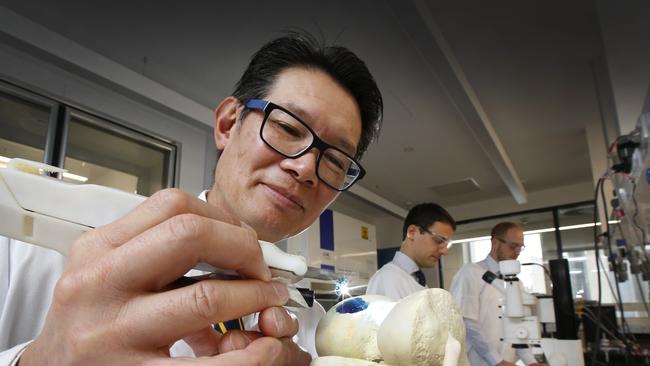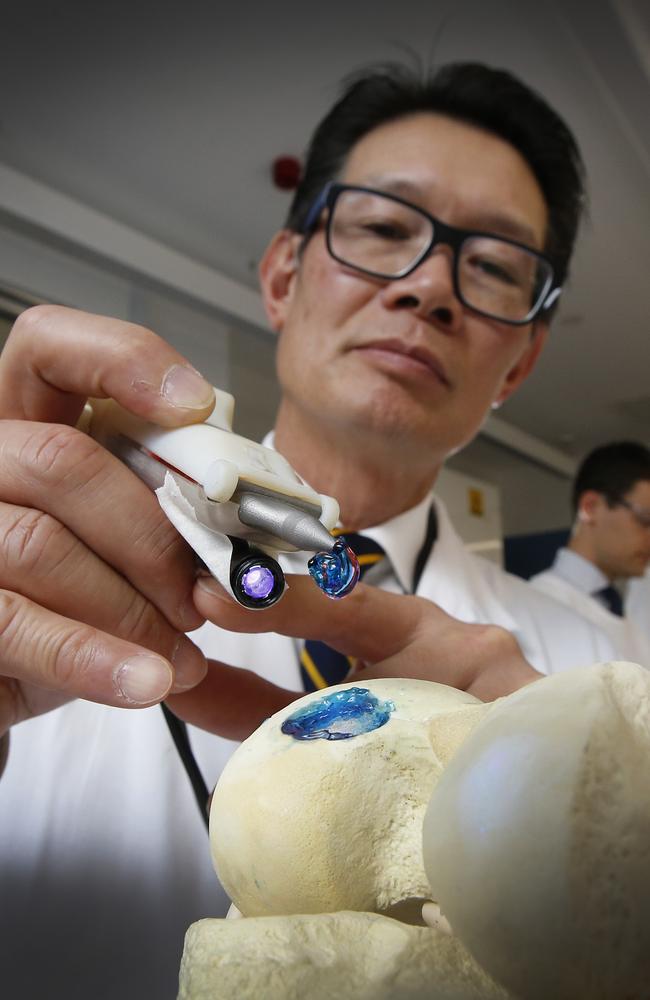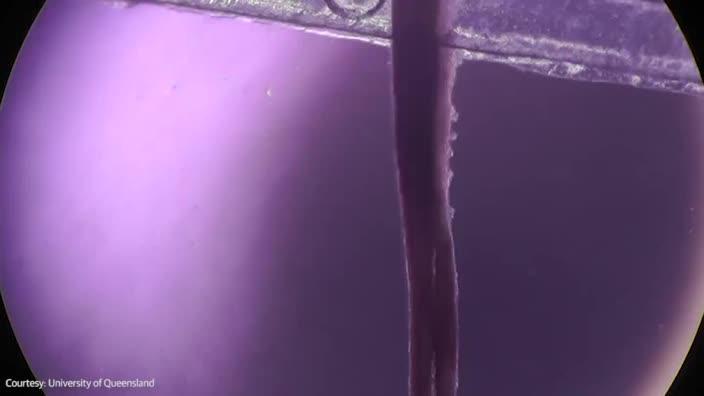Melbourne surgeons use 3D printer pen filled with stem cells to draw knee cartilage
EXCLUSIVE: A 3D printer pen filled with stem cell ink has been used by Melbourne surgeons to “draw” new cartilage into damaged knees.

VIC News
Don't miss out on the headlines from VIC News. Followed categories will be added to My News.
MELBOURNE surgeons have used a 3D printer pen filled with stem cell ink to “draw” new cartilage into damaged knees, opening up a world of possibilities for human body part replacements.
The breakthrough Biopen paves the way for the Melbourne-led team eventually to repair damage to bones, muscles and tendons, and even to tissue in organs such as the heart, the liver, and the lungs.
It has been used in six sheep to repair knee injuries similar to those commonly suffered by Australian rules footballers.
St Vincent’s Hospital orthopaedic surgeon Professor Peter Choong said the technique could be adapted to treat a range of conditions in humans.

AUGUST, 2016: Cerebral palsy hope: Melbourne stem cell newborn brain injury trial plan
“The healing was exceptional,” Prof Choong said.
“Although we have used this primarily for cartilage, we can already see how this can be used in a variety of other clinical situations.”
The Biopen was developed by the Aikenhead Centre for Medical Discovery, based at St Vincent’s Hospital, and the University of Wollongong.
It allows surgeons to use 3D printing technology to draw missing tissue into a patient. The toothpaste-like ink mixes a gelatine substance with pluripotent stem cells that can be taken from a patient on the day of the surgery. Growth factors spur the stem cells to grow into the specific type of tissue needed.
An ultraviolet light fixed to the pen causes the ink mixture to dry on contact, allowing surgeons to build up layers and fill in the damaged area.
St Vincent’s orthopaedic surgeons used the Biopen to treat 1cm cartilage tears in sheep. After short periods of rehabilitation, the sheep were all able to bear weight and had regrown cartilage far stronger than “repair cartilage” found after existing treatments.
Prof Choong said the results were now being used to push for a National Health and Medical Research Council grant to perfect the treatment over the next three years.
Victoria’s Small Business, Innovation and Trade Minister, Philip Dalidakis, said the breakthrough was nothing short of astounding.



